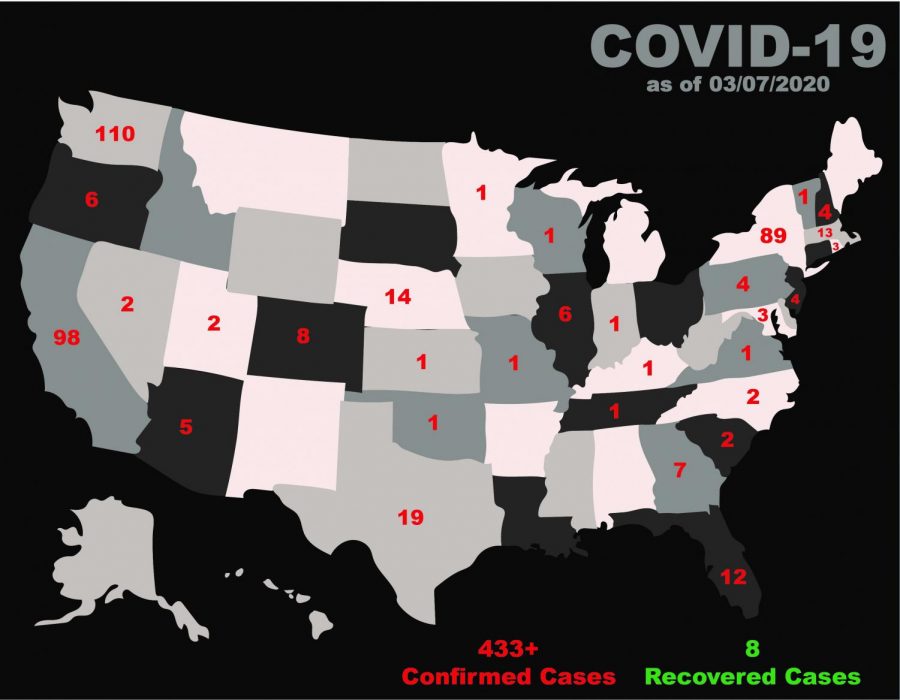Hamline activates team in response to coronavirus
With a case of COVID-19 found in Ramsey Country, Hamline’s Infectious Disease Response Team will monitor the continued spread of the outbreak, and keep the campus informed of precautionary measures.
March 11, 2020
The spread of COVID-19 is a developing story. This coverage was last updated on March 8, 2020.
Hamline’s Infectious Disease Response team was recently activated to inform and prepare campus in the event of an outbreak of COVID-19, commonly known as coronavirus.
Since its activation on Feb. 28, the Infectious Disease Response Team, chaired by Jodi Metz, Director of Health Services, has closely followed the spread of COVID-19 in the US.
“This is a brand new virus that has never been seen before in humans, so even the epidemiology experts are learning minute by minute how it behaves,” Metz said.
The team will continue to meet weekly for the foreseeable future and constantly assess the potential threat as new information comes to light.
On March 6, the response team released a campus-wide announcement that Hamline has increased its pandemic response to Level 2 following the first confirmed case of coronavirus in Minnesota from a resident who had just returned from a cruise.
Hamline’s pandemic response levels range from monitoring to active precautionary measures such as restricting travel or campus events.

Level 3 of the emergency plan would occur if a case of coronavirus is confirmed on campus. Though it is uncertain exactly what steps will be taken if the threat level increases on campus, the temporary closure of the university is one option the team is considering. In this instance, classes would be moved online where possible.
“You’re going to see more posters and flyers educating people to wash your hands all the time, keep your hands away from your face, stay home when you’re sick,” said Melinda Heikkinen, Director of Public Safety. “It may be that we don’t close the campus, but we may cancel external events to limit contact.”
The basic structure for the Response Team and the procedures for dealing with a potential pandemic were based on the university’s responses to diseases like H1N1 (swine flu) and SARS.
“Fortunately, or unfortunately, this isn’t our first rodeo when it comes to a potential pandemic,” Metz said. “Some of the plans we have made for other pandemic potentials, like the H1N1 11 years ago, don’t necessarily fit this, so we’re constantly updating based on guidelines from the CDC and the Minnesota Department of Health.”
Because of the rapidly changing nature of the coronavirus outbreak, the Oracle will continue to report on significant developments. More updates about Hamline’s response to coronavirus can be found at http://hamline.edu/COVID-19.

